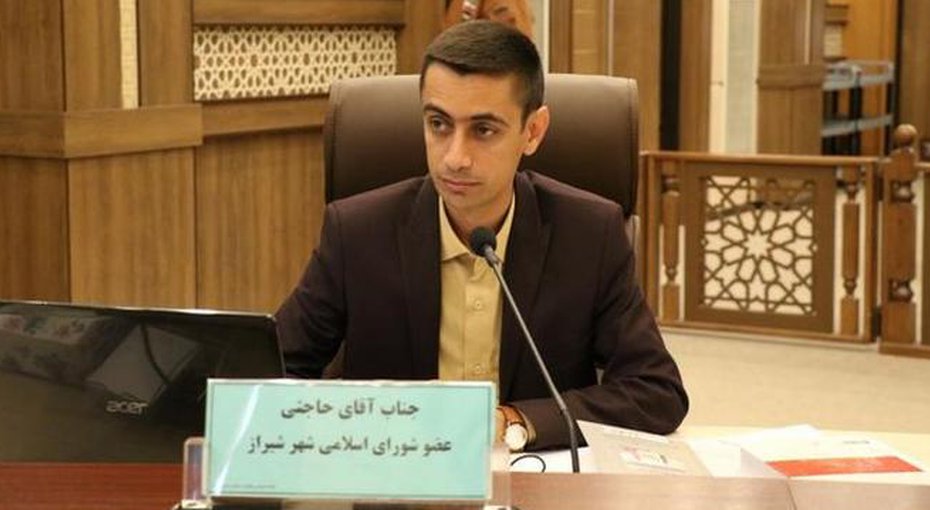Source: www.iranwire.com
By Behnam Gholipour

The arrest of a local politician who spoke out about the imprisonment of two Baha’i environmental activists has prompted a wave of public support on social media.
On September 25, Shiraz City councillor Mehdi Hajati tweeted: “For the past 10 days I have knocked on every door to secure the release of my two Baha’i friends but I have gotten nowhere. As long as we have to stand up against foreign enemies, our generation is duty-bound to do its best to reform our judicial ways and other things that endanger social justice.”
The tweet led to his arrest within two days. On the afternoon of Thursday, September 27, security agents arrested Hajati on the charge of “supporting Baha’ism.” The public’s response, going on to Twitter to express support for both Hajati’s decision to speak out and for the rights of the Baha’is — may have caught the government off guard.
On September 15 and 16, the Intelligence Ministry detained six environmental activists in Shiraz, the latest in a series of arrests of environmentalists this year. The detained are likely to face further injustice because they are from Iran’s Baha’i community.
In the 40 years since the 1979 revolution, the Islamic Republic has extensively persecuted the Baha’is and violated their rights. The regime has also persistently tried to sell its view, and justify its treatment, of the Baha’is to the Iranian people. And yet the news of Hajati’s arrest has led to unprecedented and widespread criticism and protests on social networks, evidence that the tide of public opinion is starting to turn. [All tweets are in Persian.]
“The crime of Mehdi Hajati is to support the rights of all citizens, regardless of their religious beliefs,” tweeted one Iranian, Saeed Naimi. “He has challenged the strategy of ‘us’ versus ‘them’.”
“Mr. Hajati’s tweet was humane and just,” tweeted another, Abbas Abdi. “The demand for the due process of law for each Iranian individual has more to do with defending the country and the law than defending only two individuals.”
“Mehdi Hajati is an honorable man who understands what it means to be a human being,” tweeted Ali Farrokhi. “He understands that Baha’is are his fellow human beings. He looked at life regardless of nationality, religion and race. He did not stay silent and now he is in prison!”
Majid Jokar called Mehdi Hajati “a courageous, noble and honorable representative” who “has been arrested for his honorable defense of the civil rights of the people of Shiraz.”
“I found it so strange that an official in the Islamic Republic would defend the rights of the Baha’is that I had to go to Twitter quickly to see whether it was true or not,” tweeted Shakib Nasrollah. “Now, as God is my witness, I have seen everything!”
“There have been very few officials of the Islamic Republic who have listened to the problems of the Baha’is and even fewer who have tried to help them,” wrote Shahi Milani. “Those who, like Mehdi Hajati, have publicly supported the Baha’is are really few. I praise his humanity and his courage.”
“Mehdi Hajati, representative to Shiraz City Council, has been arrested and his Twitter account has been blocked for supporting the rights of the Baha’is,” tweeted Mostafa Siamak. “We must not allow these lonely voices inside the country to be silenced.”
“Fighting against discrimination is not the same as promoting Baha’ism,” tweeted Ramin Madarshahian. “Iran is for all Iranians and the Baha’is, the Muslims, the Christians and even the atheists have equal rights as long as they are Iranians.”
“The charge of supporting Baha’ism against Mehdi Hajati, member of Shiraz City Council, is ridiculous,” tweeted Ali Kalaei. “Hajati supported the rights of two Iranian citizens and the right to the due process of law. We are all Iranians, regardless of our religion and our beliefs. The constitution applies to all Iranians, regardless of their faith.”
These tweets are only a small sample of the flood of support for the Bahai’s, Hajati, and the wider issue of rights for all Iranians, regardless of their religious affiliation. Unsurprisingly, religious zealots launched a counterattack in line with the wishes of the ruling clergy of the Islamic Republic, lashing out against both the Baha’is and Mehdi Hajati. These attacks repeat the usual claims and charges against the minority religious community, demanding that action be taken. Nevertheless, in recent years many faithful Shia Muslims in Iran have expressed their belief that authorities treat Baha’is unjustly and that discrimination and injustice against minority religions and ethnic groups in the country must end.
Leave a Reply